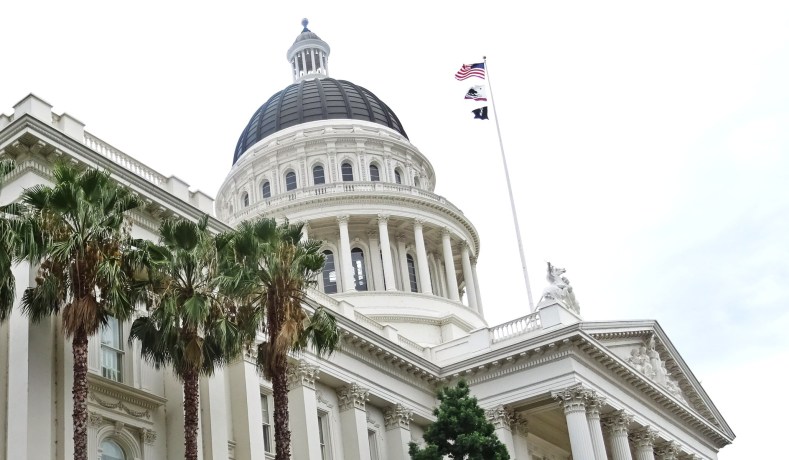
Among the subjects touched upon in the latest Capital Note are some new proposals to increase taxes in California (yes, it’s a day ending with a y). They are all bad, and in all likelihood, self-defeating (yes, it’s a day ending with a y), but it’s worth noting that they include a wealth tax, something that appears, increasingly, to be in the air. The Wall Street Journal has some of the grisly details here.
So far as the wealth tax is concerned, it would be charged at a rate of 0.4 percent on assets over $30 million. That, of course, will not worry 99 percent (at least) of the population, but it should, because what those who want to impose a wealth tax are saying is that nothing that anyone owns is, in the end, theirs. Once the principle is conceded, the number, whether it is $30 million or $300,000, is merely a matter of negotiation, as is the rate at which it would be levied. Everything you own, you own simply at the pleasure of the state.
Forbes has more:
California Assembly member Rob Bonta, D-Oakland, proposed the legislation. The tax would be applied to the net worth of about 30,400 Californians, “raising approximately $7.5 billion annually,” the summary claims. “The tax takes into account all assets and liabilities held by an individual, globally, capturing the immense levels of accumulated wealth held by the top 0.1% of Californians.”
…There are administrative nightmares too. Wealth isn’t about income, but about assets. How do you determine the value of everything you own? For example, what about stock options in private companies? You can bet that you might say one figure, and the notoriously aggressive Franchise Tax Board might say something quite different. That could prompt more than just billionaire CEO Elon Musk threatening to abandon California.
And a tax on wealth is also an attack on privacy. To start with, all those subject to the levy will have to list everything they own. More than that, I suspect that those who might be liable might, if only as a precautionary measure, feel compelled to furnish the state with a schedule of their assets, a process that we can be sure will, in due course, be repeated further and further down the rich list.
Sweden abolished its wealth tax in 2007.
The Financial Times had this to say at the time:
The move will have virtually no effect on government finances. The tax raises around SKr4.5bn a year from just 2.5 per cent of all tax payers, but it has been blamed for years of massive capital flight from the country estimated at up to SKr1,500bn.
Wealthy individuals including Ingvar Kamprad, the founder of IKEA, the furniture store, and one of the world’s richest men with a $23bn fortune, have sought to avoid the tax by setting up overseas foundations to control his wealth.
Experts in Sweden said the abolition of the wealth tax should halt – or at least slow – this damaging capital flight and make more resources available for venture capital and other early stage investments…
The wealth tax has been blamed for Sweden’s low level of investment by individuals in start up businesses, contributing to disappointing entrepreneurial activity in comparison with other European countries.
Among the 25 members of the European Union, Sweden ranks 18th in terms of the percentage of citizens that run their own businesses.
As this Cato report (from 2019) notes:
More than a dozen European countries used to have wealth taxes, but nearly all of these countries repealed them, including Austria, Denmark, Finland, France, Germany, Iceland, Ireland, Italy, the Netherlands, Luxembourg, and Sweden. Wealth taxes survive only in Norway, Spain, and Switzerland.
And:
It was the same story with the French wealth tax, which was imposed in 1982 and repealed in 2017. Over the years, a parade of French businesspeople and celebrities left the country to avoid the tax — many going to Belgium, which is also a high‐tax country but has no wealth tax. The government estimated in 2017 that “some 10,000 people with 35 billion euros worth of assets left in the past 15 years” for tax reasons. French economist Eric Pichet estimated that the outflows were much larger.
As the wealthy moved abroad, the government lost revenues from a range of other taxes they would have paid. Pichet calculated that while the wealth tax raised about 3.5 billion euros a year, the government lost 7 billion euros a year from reductions in other taxes.
There is a reason why the Californian proposal also makes provision for continuing to levy the wealth tax (at gradually diminishing rates) on former residents who have left the state, but that will do nothing to halt the losses from the other taxes that those residents would have paid had they stayed put.
Back to the Wall Street Journal:
[T]he top 0.5% currently pay 40% of the state’s income-tax revenue—$32 billion in 2018—and are mobile. California has experienced an accelerating exodus of high earners since the state in 2012 raised taxes on individuals making more than $250,000. In 2018 the state lost $8 billion in adjusted gross income to other states, up from $135 million in 2012, according to IRS data.
The proposed wealth tax would (for now) ‘only’ affect the top 0.1 percent, but even so . . .

